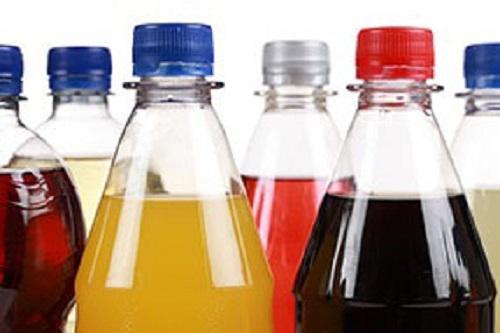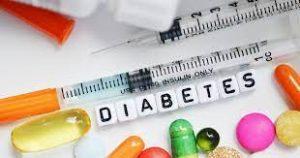Nigerians consume sugary drinks a lot. Now, the government plans to tax them for this habit. Will this save them from preventable deaths linked to sugary drinks? MOSES EMORKIEN writes.
An anonymous quote said: “One of the biggest sins any Nigerian may commit today is to fall sick or need emergency healthcare service.” As much as a citizen would like to be patriotic, defend the country and utterly disregard and condemn the above statement, there is not so much to defend.
While the latest health system rankings by the World Health Organization (WHO) showed that Nigeria advanced from being ranked 187 out of 191 countries two decades ago, to 163 out of 191 countries, the health reality in the country is not one every Nigerian can be proud of.
Incessant health workers’ strikes, inadequate manpower, and infrastructure, poor funding, huge out-of-pocket expenses to access quality medical care, are among a host of problems bedeviling the health sector. The new entrant is the COVID-19 pandemic which largely undressed and revealed the deep-seated rot in the Nigeria health system.
More than ever before, Nigerians need to take their health more seriously. More so, there is no better time to make healthier choices than now when the world has been awakened to the rude shock of the COVID-19 pandemic and its attendant morbidities (illnesses) and mortalities (deaths). Chances are that if Nigerians make healthier choices (eating, drinking, sanitation, exercising, vaccination, etc.,), their immune systems will be strong enough to fight any disease, hence, keeping them healthy, alive and productive. For example, in recognition of the effect of consumption of tobacco and alcohol on the severity and mortality of coronavirus infections, countries like India and South Africa banned the consumption of these “health bads” for a period of time.
– Advertisement –
Sadly, according to a study by WellNewMe, a health technology company, 75 per cent of Nigerians are at risk of non-communicable diseases (NCDs), which reduces their chances of survival, especially when other diseases such as COVID-19 hit them. A study carried out in Lagos by Osibogun and colleagues in Lagos at the height of the pandemic in 2020 revealed that the mortality rate of COVID-19 patients was higher in those with co-morbidities. The co-morbidities that were identified as risk factors for death were hypertension, diabetes, renal disease, cancer, cardiovascular disease and HIV. In the study, a significantly higher proportion of patients with co-morbidities died compared to those without – with many of these co-morbidities linked to lifestyle choices such as consuming unhealthy foods and drinks, especially Sugar-Sweetened Beverages (SSBs).
According to a World Bank Group report obtained by The Nation, there is now strong evidence based on the association between the consumption of SSBs and health outcomes. The report revealed that consumption of SSBs have been associated with higher incidence of weight gain, overweight, obesity, type 2 diabetes, dental caries, heart disease, metabolic syndrome, cancer, and all-cause and cause-specific mortality.

In fact, in 2016, a global soft drinks market analysis showed that Nigeria is the fourth highest consumer in the world market for soft drinks (with over 40 million liters sold yearly), coming after the United States, China and Mexico. The market was also projected to grow by 17.12 per cent per year between 2021 and 2026, resulting in market size of about 10 billion USD (in retail prices).
Sugar-sweetened beverages (SSBs) include any liquid that contains natural or added sweeteners including various forms of sugars such as brown sugar, corn sweetener, corn syrup, dextrose, fructose, glucose, high-fructose corn syrup, honey, lactose, malt syrup, maltose, molasses, raw sugar, and sucrose. These may include soft drinks (i.e., colas, malt), juices (even 100 per cent juices), nectars, sweetened coffee, sweetened tea, energy drinks, specialty drinks, and flavored dairy.
How consumption of SSBs threaten Nigeria’s health and economy
Minister of Finance, Budget and National Planning Zainab Ahmed, while presenting the breakdown of the 2022 budget, announced that the Federal Government has introduced an excise tax of N10 per liter on all non-alcoholic, carbonated, and sweetened beverages.
Explaining that the new tax was introduced to raise excise duties and revenues for health-related and other critical expenditures in line with the 2022 budget priorities, Ahmed added that the primary aim of the tax is to discourage excessive consumption of sugar in beverages, which contributes to obesity, diabetes, and other diseases.
According to a Senior Health Specialist at the World Bank, Dr Olumide Okunola, “Disease burden is shifting from communicable diseases, with 29 per cent of mortality attributable to non-communicable diseases (NCDs). Cardiovascular diseases, cancer and type 2 diabetes are the most prevalent. “37 per cent of productivity losses in Africa are due to NCDs, and Nigeria is among the top five (5) countries with highest Disability Adjusted Life Year (DALYs) accrued in Africa. DALYs represent the loss of the equivalent of one year of full health. In 2015 alone, accrued DALY’s could have led to loss of productivity of $879,059,495.82 for Nigeria. It is noteworthy that out of the total productivity costs, those in the most productive age bracket of 15 to 59 years would bear about 38 per cent of such losses. The case for modifying these risk factors downwards is therefore grounded not only in health but also an economic argument.”
Speaking with The Nation, the Managing Director of the Nigerian Health Watch, Vivianne Ihekweazu, explained that the pro-health tax on SSBs should bring long term benefits and healthcare costs savings through the prevention of non-communicable diseases like diabetes.
“Data indicates that 1 out of every 17 adults in Nigeria is living with diabetes. The Federal Government is taking this action to improve the economic and health indices of the country.
“The tax generated from SSBs will result in key outcomes: a gain for public health by bringing about improved health outcomes and reduced healthcare costs; a plus for domestic revenue by introducing a new source of funding; and a win for the economy by the reduced loss in productivity due to ill health,” she said.
Since the announcement of the introduction of excise tax on SSBs, a handful of stakeholders have raised concerns over it. According to them, the country will lose revenue and experience a widening unemployment gap, as many Nigerians may lose their jobs directly or indirectly.
While their arguments may seem economically grounded and compelling, it is important to remind Nigerians of the simple phrase that – “a healthy nation is a wealthy nation.” No nation, no matter how blessed it is, can make significant progress without its human resources (people) to drive growth and development; otherwise, its previous gains and plans for the future will all come crashing down. Even the giant of Africa needs good health to retain its title, pride and position; a sickly and weak giant becomes a burden to everyone and itself.
The President/Chief Executive Officer of the Nigerian Cancer Society (NCS), Dr Adamu Al-hassan Umar, in a chat with The Nation said: “In line with the dictates of resistance to change theory, it is not unexpected that many will oppose this laudable development due to perceived fear of the unknown, but for majority of us advocates that have been calling for judicious application of the meagre resources, this development has gotten our total support and we welcome it in its entirety.
“This tax on SSBs has been operational in other countries of the world and there is no scientific evidence to the fact that it reduces the revenue of any given nation. In contrast to that above, it will be beneficial to the system in that appropriate taxation will ensure genuine contribution to national development by the manufacturing industries.
“I strongly doubt that the introduction of taxes on SSBs will cause poverty or some untold financial strain to Nigerians. This is because some taxes have been reflected in the past like the taxes on alcoholic beverages and tobacco, and there has been no statistical evidence to suggest reduction in consumption or any job loss at the same time.
“The human brain is created to solely use glucose, which is sugar to function, but the problem with SSBs just like tobacco products is the fact that they cause more harm than good to the human body and hence, for us advocating for reduction of consumption of these addictive substances, the negatives far outweigh the positives in terms of any nutritional value to the human body. These SSBs have very high readily absorbable free sugars, while providing little to no nutritional value other than as a source of energy.”
He further noted that the revenue raised form the introduction of such taxes could also be a gain for the health sector. “Nigeria was a signatory to the Abuja Declaration where all African Union (AU) countries pledged to allocate at least 15 per cent of the consolidated budget to health. But over the years, the yearly provision has been abysmally low in direct violation of the agreement.
“This year, a meagre figure less than 5 per cent is the share to health from the budget, and this further underscores the fact that any additional revenue that can be channeled to the health sector will be a welcome development, and definitely will go a long way in improving the very poor health outcomes in Nigeria.”
Also speaking with The Nation, Comrade Bernard Enyia, the Secretary-General of the Diabetes Association of Nigeria and Co-Chair of the National Action on Sugar Reduction (NASR) coalition, added: “Since the pro-health tax regime was introduced through a legislative process, there is little anyone can do to reverse the decision, but the Federal Government needs to listen to the pro-health civil societies’ opinion more than those who are totally in opposition. The government needs to draw sustainable implementation guidelines to maximise the proceeds from revenue, and it should be domiciled in a special intervention fund.”
A life-saving alternative
According to the World Bank Group, in the last 25 years, there has been almost a 400 per cent rise in the number of diabetics in Nigeria. There has been a progressive increase in the prevalence of diabetes mellitus in Nigeria with a dramatic 2.6 – fold increase in prevalence over the past three decades from a prevalence of 2.2 percent in 1992 to 6 percent in 2015.
This means that taking care of diabetes will become a burden for both the individual and society. It would have been a different conversation altogether if the country had enough financing to take care of people who are ill – diabetic, hypertensive, cancer etc.
Countries that have attained Universal Health Coverage (UHC) are able to achieve that because of the significant amount of public health financing. This means that the government raises money, prioritises the money it has raised and allocates to the health sector. Without public health financing, countries cannot attain UHC.
For every person that gets sick and needs to go to a diabetes clinic, he or she is not working, not making enough money, and loses income whether directly or indirectly. Overall, the country loses valuable manpower and revenue.
The cost of treating diabetes in one year without complications is between N300,000 to N500,000 or $1,000. However, when complications develop, such as diabetic foot or worse still kidney failure, a person needs over N1.5 million or $3,000. This is particularly worrisome owing to the fact that according to the National Bureau of Statistics (NBS), more than 82 million Nigerians live on less than $1 a day.
The same catastrophic cost to access quality healthcare service applies to other non-communicable diseases and complications such as stroke, cancer, hypertension, heart diseases etc., which have a very strong relationship with people’s poor nutrition habits, for example, the consumption of SSBs.
“It is a collective duty of all citizens to ensure the successful implementation of the laudable initiative of taxing SSBs, hence, the need for all hands to be on deck towards creating a viable system that works for the common man.
“The Nigerian Cancer Society being the umbrella organisation for all Cancer related non-governmental organisations (NGOs) in Nigeria, will partner effectively with the Non-Communicable Diseases Alliance, Nigeria, the National Action on Sugar reduction coalition, the Diabetes Association of Nigeria, Healthcare Federation of Nigeria and all similar organisations towards being watchdogs to ensure the actualization and proper application of these taxes which have now become law,” Dr Umar said.
The Nation




















